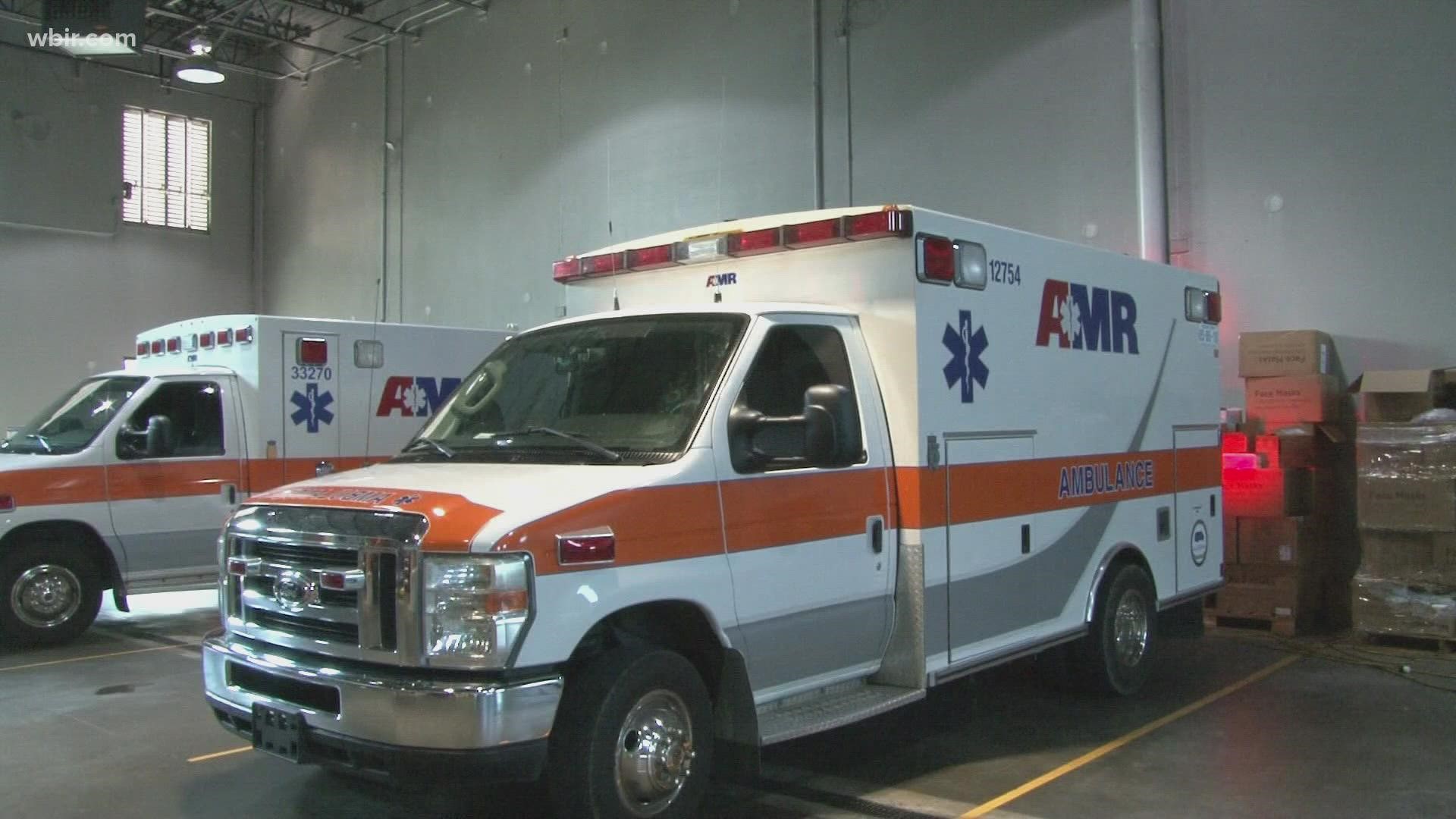KNOXVILLE, Tenn. — Knox County's ambulance service will soon begin offering in-home telemedicine consultations for patients who call 911 with the goal of reducing non-emergency patients in crowded emergency rooms and the costly bills that accompany ER visits.
Spanish Version: Nuevo programa intenta reducir las esperas en salas de emergencia y los gastos de ambulancia en el Condado de Knox
Currently, American Medical Response can only bring patients who call 911 to local emergency rooms. Under the new program, a licensed physician can consult with patients over a video call—and recommend alternatives to going to the emergency room, if appropriate. In some cases, AMR can bring patients directly to urgent care clinics.
Ambulance crews will still transport people who are badly hurt or suffering from heart attacks, for example, to the emergency room, AMR said.
"It saves time, it saves space, it saves money," Director of the Knox County Health Department Dr. Martha Buchanan said at a Tuesday press conference.
The pilot program, called ET3 (which stands for Emergency Triage, Treat and Transport), will begin for all patients in Knox County on August 12. AMR began using it for Medicare patients in March.
The ET3 program is part of a new pilot expansion of ambulance capabilities for Medicare patients. AMR decided to expand the services beyond people with Medicare insurance in a test program in Knox County.
The company said one in three calls for ambulances in Knox County are from people who do not need an emergency room, just medical attention. During the height of the coronavirus pandemic in December, the ambulance service said it struggled to have enough free ambulances to respond to emergency calls.
For years, AMR and Knox County hospitals have complained emergency rooms are crowded with patients who don't have a true emergency. It slows wait times for patients and ties up ambulance crews that can respond to 911 calls.
This program aims to change that.
"Quicker medical responses for non-emergency patients will, in turn, free up ambulances to better respond to all calls, including emergencies," Knoxville mayor Indya Kincannon said.
Medicare will cover, at least in part, the telemedicine consultation and transportation to an urgent care clinic. AMR said people without insurance or with other providers will also benefit; a telemedicine visit is still cheaper than an ambulance ride and an ER bill.
"It’s aimed at getting the right patient the right care at the right time. That’s not always an emergency department," said Joshua Spencer, AMR's regional director.
Testing the program in Knox County will allow the company to gather data to assess implementing this type of system nationwide, Spencer said.
He said eventually, AMR hopes to expand its ability to bring patients to mental health facilities like Helen Ross McNabb or even provide nursing advice over the phone and allow transportation via Uber or Lyft.

